CBD Products – What’s Really in that Container?
Betty Chaffee/ September 15, 2020/ CBD/ 3 comments
CBD (cannabidiol) is gaining a lot of interest from consumers and health professionals alike. There are still many unanswered questions about it though, and this series of articles is designed to shed some light on the topic. The first article in this series focused on federal and state regulation of CBD and how that affects the potency and purity of products. We also talked about what CBD is, and how it differs from what we think of as "marijuana". Before talking about CBD's effectiveness and safety though, we're going to take this second article of the series and talk about the products you'll find on the internet and the retailer's shelf. What's in them, how are they used, and how can you choose the right one?
Are all CBD products really 100% CBD?
Some are, some aren't. It's important to look at labels and Certificates of Analysis (COA's) carefully before you make a purchase. Remember, the current lack of government regulation on the CBD industry puts you in charge of making sure you are getting quality product. Some products may have labeling that's intended to sell you on a product rather than give you the information you need. It's always best to verify the ingredients and amounts contained in the product.
Here are some definitions of ingredients you'll see on labels:
-
CBD oil is extracted from all parts of the cannabis sativa (hemp) plant, including flowers, leaves, seeds, and so forth. It contains a high concentration of CBD, sometimes with small amounts of other cannabinoids. There may be a trace of THC, up to 0.3%, but not enough to result in a "high". The extract is then dispersed in an oil base.
-
Full Spectrum CBD contains CBD as described above, plus a higher concentration of other chemicals found in the hemp plant including terpenes and other cannabinoids. It may also contain trace amounts of THC.
-
Broad Spectrum CBD is the same as Full Spectrum CBD, but without any THC.
-
CBD isolate contains nearly pure CBD.
-
Hemp seed oil is extracted from the seeds of the hemp plant, which do not contain CBD but are rich in healthy fatty acids, proteins, and other nutrients.
It'll be important to know whether you want to try a product with pure CBD, one that contains other cannabinoids or chemicals, one that's free from THC, or a product that has no CBD at all. We'll talk in more detail later in this series about the pros and cons of the different ingredients. But for now, suffice it to day that purchasing a CBD product can be confusing and complicated unless you already know what you're looking.for.
What about dosage forms?
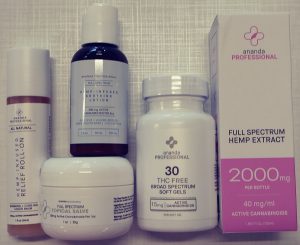 CBD products come in many different, and sometimes surprising, forms. There are oral formulations, such as oils and tinctures, that can be swallowed or allowed to absorb under the tongue. Some oral products are available as gummies or capsules as well. Topical products like creams, balms, and lotions can be applied to the skin. Aerosols for inhalation can be found in cartridges for e-cigarettes. There are even CBD-infused facial masks, and CBD products for pets.
CBD products come in many different, and sometimes surprising, forms. There are oral formulations, such as oils and tinctures, that can be swallowed or allowed to absorb under the tongue. Some oral products are available as gummies or capsules as well. Topical products like creams, balms, and lotions can be applied to the skin. Aerosols for inhalation can be found in cartridges for e-cigarettes. There are even CBD-infused facial masks, and CBD products for pets.
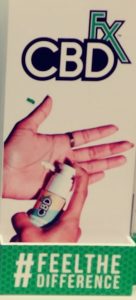 T
T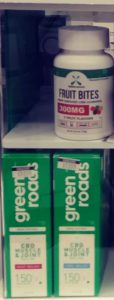 he array of CBD dosage forms will probably continue to widen as time goes on. We'll talk in more detail later in this series about the pros and cons of the different dosage forms so you'll have a better idea of what might be right for you. But as with ingredients, you'll want to know what you're looking for before you start looking!
he array of CBD dosage forms will probably continue to widen as time goes on. We'll talk in more detail later in this series about the pros and cons of the different dosage forms so you'll have a better idea of what might be right for you. But as with ingredients, you'll want to know what you're looking for before you start looking!
But what dose should you choose?
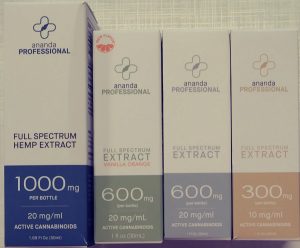 As you can see, CBD comes in a variety of concentrations and dosages. And this is just one manufacturer among many. How in the world will you know what dose is right for you? That question may take some time to answer, so we'll give that some in-depth consideration later in this series. My point in bringing it up now is that it's one of at least three things you'll want to have thought about before heading to the retailer or website to make a purchase.
As you can see, CBD comes in a variety of concentrations and dosages. And this is just one manufacturer among many. How in the world will you know what dose is right for you? That question may take some time to answer, so we'll give that some in-depth consideration later in this series. My point in bringing it up now is that it's one of at least three things you'll want to have thought about before heading to the retailer or website to make a purchase.
Finding the CBD product that's right for you will require homework
If you've decided that you want to try a CBD product, it'll be up to you to give consideration to which ingredients, dosage form, and dose are best to start with. Of course, you're still missing some important information: is CBD effective? Will it improve your health or comfort level? Those issues will be discussed in an upcoming installment (or two) to this series.
Who can help you make these decisions?
Because CBD isn't regulated at the federal level, some states have put regulations into place. But many haven't, putting the sale of CBD in sort of a legal limbo. That leaves many pharmacists reluctant to sell CBD until licensing boards give it a green light. But even so, many pharmacists are learning more and more about CBD so they can help their patients. Go ahead and ask your pharmacist for advice, and if he or she is still in the learning process, contact us at BetterMyMeds!
Stay tuned to BetterMyMeds.com for more on CBD, including effectiveness. possible adverse effects, and drug interactions. And as always, we welcome your comments and questions!
![]()

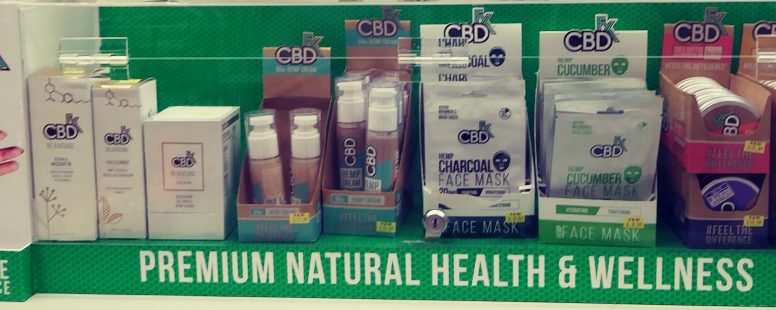
Thanks for this series. I tried some CBD gummies just to see if I experienced any health benefits. I could not tell if there were any benefits so doubt that I would buy those again. I didn’t pay attention to the labeling but will look from now on now that I know what to look for. The sad part is that the gummies that I tried seemed expensive. Do you know if there is an enormous tax on these products? Seems to me that the only ones benefiting the most from these products may be the government.
Hey Tony,
Did you purchase the product from a legal Cannabis dispensary or from a retail store? Cannabis dispensaries sell CBD products, but they often contain more than the 0.3% THC you’ll find in the regular retail stores. Dispensaries are definitely regulated by the government, and there are taxes involved in that for sure. That drives up the price. The products you’ll see in regular retail stores are not regulated, so the only tax you’ll pay is the sales tax. For those, the price is high just because they can charge it and people will pay it.
Pingback: CBD Oil - What are the Health Benefits? - BetterMyMeds